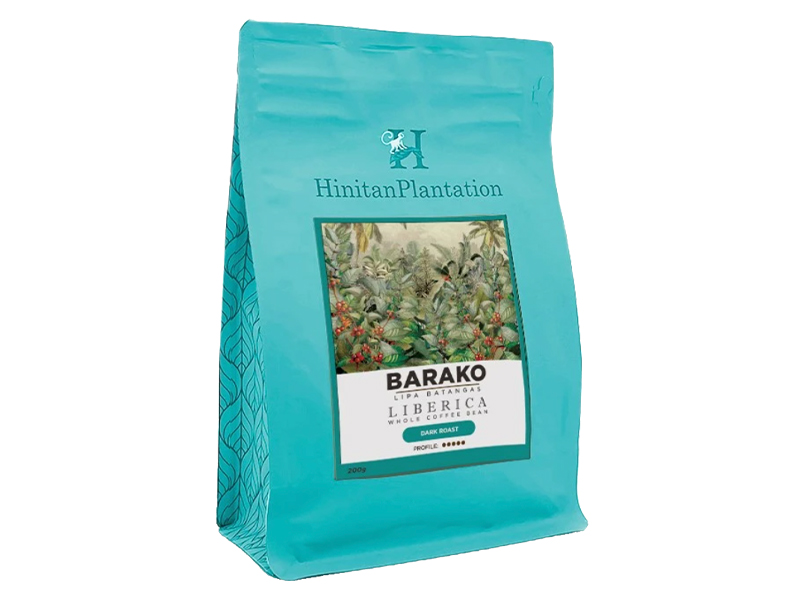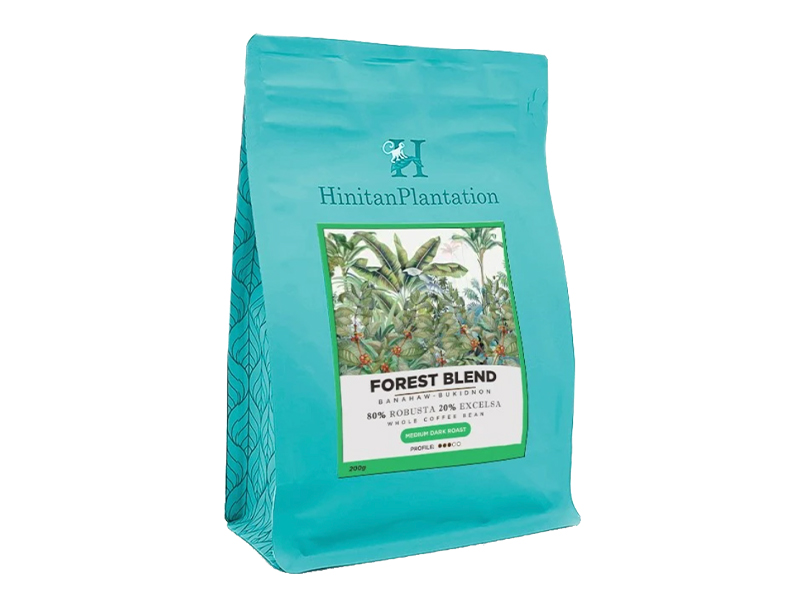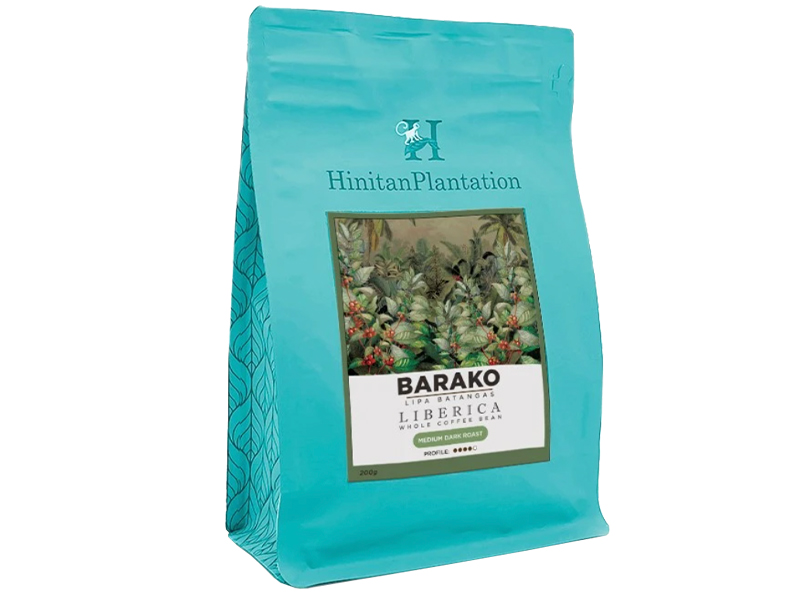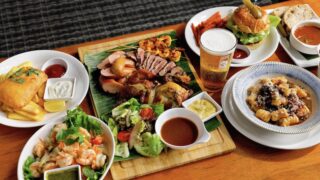We chat with STEVEN BALLANTYNE about his brand Hinitan Plantation, and the farm-to-table coffee beans and vegan chocolate it sells in Hong Kong.
What brought you here, and more generally to Asia?
Wow, that’s a long and complex story. The short version? I’m originally from Birmingham, and when I moved to London in my late teens, I discovered a passion for dance. This led me to university where I majored in psychotherapy and dance movement therapy – primarily the study of non-verbal techniques in therapist-client relationships. In turn, I began to focus on the management of bereavement, and a growing interest in tribal rituals. My first journey to Asia was to study the bereavement rituals of a tribe in Papua New Guinea.
At that time – in my early 30s – I’d only travelled within Europe, so it was a big deal for me. So I planned a 12-month world trip, starting in Papua New Guinea, with the full intention of continuing work and study in London on my return.
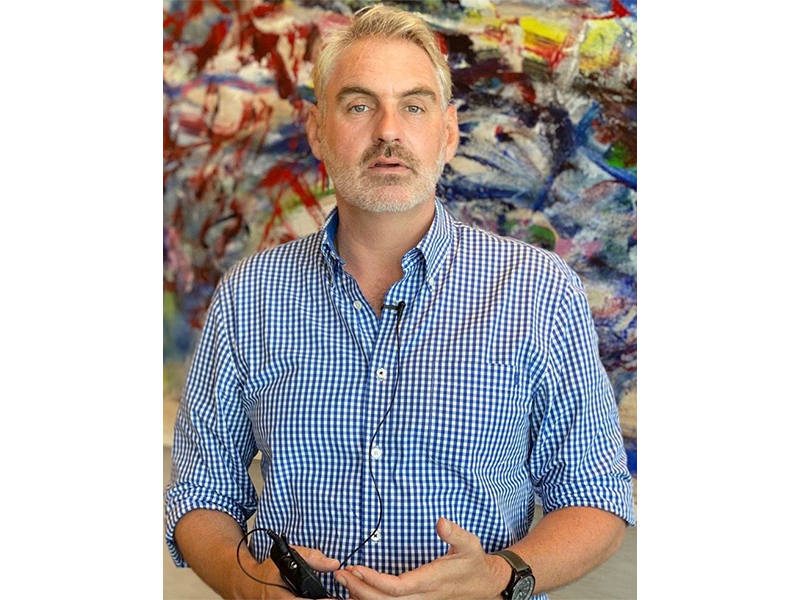
And that didn’t happen?
An unprecedented life-changing event led me to realise I was more at home in the jungles of PNG and across Asia than in London. Physically, yes, I did go back to the UK, but my heart and mind were in this part of the world. So I returned frequently, exploring remote countries and often running self-created aid projects to support their communities. A UK television company then asked me to manage the filming of a series in PNG for the Discovery Channel – I accepted the job, and it would later lead to me setting up my first company, EPM Asia Ltd.
EPM is today a leading pre-production and production management service with offices in Hong Kong and Shanghai, production-managing blue-chip wildlife, adventure and commercial filming in remote locations across China and Asia.
Initially based in the UK, I moved EPM to Hong Kong as I could see filming opportunities in China expanding; I became one of the first Western location producers to actively manage film shoots in restricted areas of China.
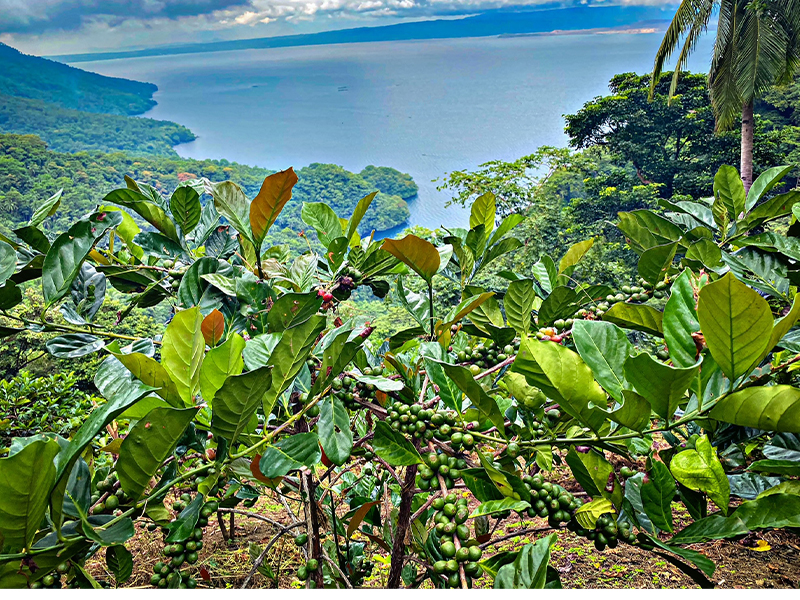
So how did a coffee business come into the frame – was it something you’d been brewing for a while?
It was a Eureka moment. Nearly 20 years ago, I was in the jungles of Papua New Guinea and my guide gave me a coffee. He had actually gone to the fields and purchased the beans from a farmer, then roasted them on an open fire, crushed them with a rock and mixed in the hot water. It was a dark, murky drink, but I was enamoured by the strange, rich taste – it was rough and ready, and something I’d not tasted before. I knew at that moment I would have a coffee farm!
Over the next 20 years, I visited farms across PNG, Southeast Asia and the Pacific seeing the different types of coffee available and the methods used.
Tell us a bit about your farm in the Philippines.
We started Hinitan ten years ago. The farm is situated on the steep banks of Taal Lake, a beautiful spot two and a half hours outside of Manilla. I was climbing in the local area with my partner and I looked down and saw this strip of jungle, and I said, “That’s where we’re going to build a farm!” It took a while to sort out how to buy the land, but my partner is from the Philippines, so that helped.
It was a small project at first, but over the years our passion for coffee grew. And we chose to grow a rare and endangered species, Barako Liberica. It only provides a crop once a year – and it’s not a high yield. But we wanted to develop it for the international market; and that’s what we’ve done. We’ve built roads into the farm, dug our own water well, and become extremely self-sufficient. Today, the farm is over 30 acres; it has a restaurant and guest houses, and is beautifully laid out, with a fantastic team.
What have been some challenges of developing the brand in Hong Kong?
The Hinitan brand only came about through the pandemic and the lockdown. Initially, we were growing our coffee to serve in the restaurant and guesthouse on our farm, and maybe to sell locally. We had all the plans in place to move to the Philippines.
When COVID happened, my TV work naturally went quiet, and we started to sell coffee here in Hong Kong. We were proud of what we’d achieved, and we wanted to share that.
The company grew quite quickly and we also now sell other coffees from all over Asia. We’ve had lots of issues, and faced some very good competition – not that it’s really “competition”, as we all produce beautiful, different varieties.
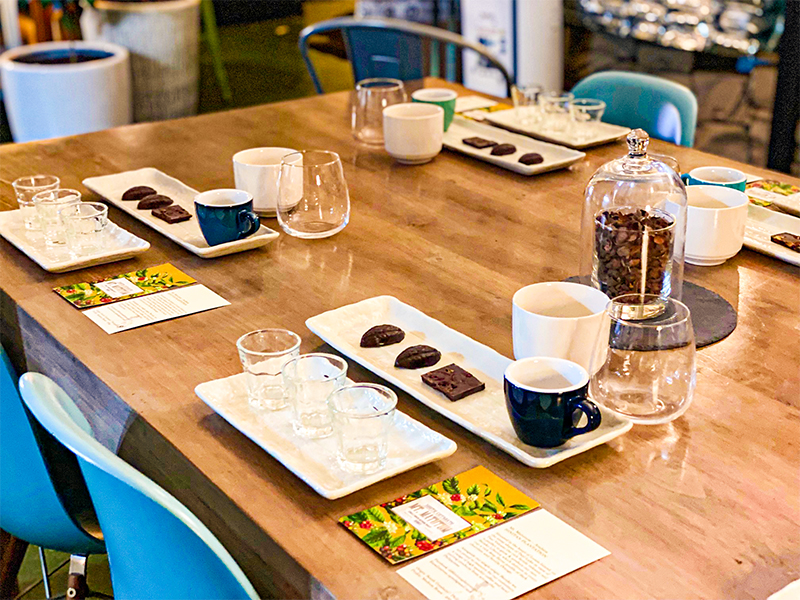
We’re proud of what we do, and customers keep coming back. How would you describe Hinitan coffee?
Our estate coffee is Barako Liberica – as I mentioned, a very rare coffee indeed; there aren’t many countries where it grows. It has undertones of rich chocolate and dark cherry. It’s traditionally very earthy and slightly acidic, however through farming techniques we have drawn out exceptional flavours – a good, strong, wholesome coffee. Barako actually means “strong”.
The brand offers chocolate, too, which we’re happy about! What can we expect?
Our 100 percent vegan chocolate is ever-evolving. Our coffee and cacao trees grow naturally, side-by-side. As they mature, we see slight changes in the flavour – it gets better each year! We have some very exciting new flavours coming up for the Christmas period and into the New Year. It isn’t our principal product, but we’re extremely proud of it.
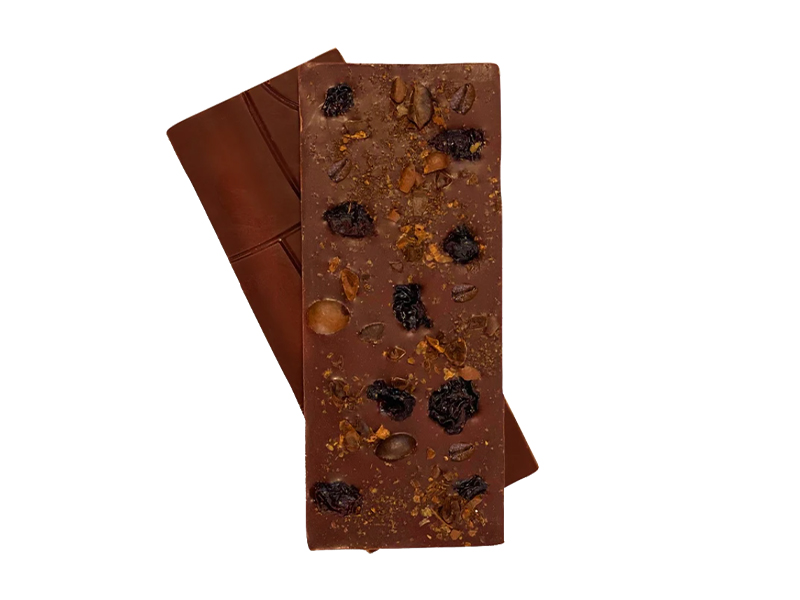
What’s your daily coffee “ritual”?
I drink a lot of coffee, starting with an espresso at the very start of the day. I always say to friends that I had to buy a farm as I couldn’t afford the amount of coffee that I drink! I’ve also started collecting good-quality coffee machines that extract really well for a true-tasting coffee; but I also drink drip coffee; it depends how busy my day is!
What’s on the cards for 2022?
Our product range is growing, and we’re looking forward to giving our customers new varieties of coffee and new chocolate flavours. Opening Hinitan-on-12 in Chai Wan is a really exciting phase in our development. It’s our warehouse where we stock all our products, but it also has a retail store and tasting area so guests can try all the coffees before they buy. We also do tasting workshops – this is all very much part of our future; it’s about exploring the senses through coffee and chocolate.
On a personal note, what are you most looking forward to in 2022?
Returning to the farm and taking our coffee to the competitions. We have the most amazing, dedicated team working with us, who’ve kept everything running to an exceptional standard while we haven’t been able to return. Yes, Zoom has been brilliant, to talk to everybody and remain fully involved in the management, but being back on the farm – hopefully in 2022 – is going to be an amazing day.
Find out more and shop coffee beans and vegan chocolate at hinitanplantation.com.
Subscribe to Expat Living magazine now so you never miss an issue!

